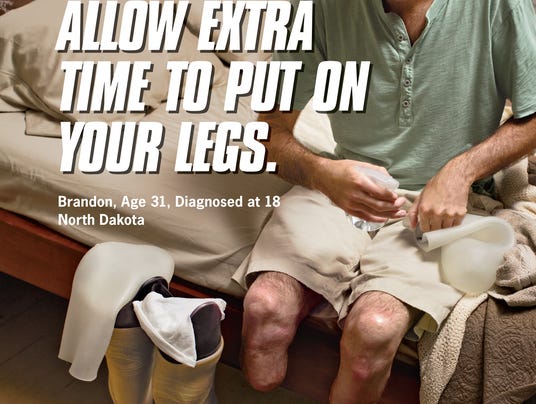In spite of concerns about “sticker shock,” rates for individual coverage on the new health insurance marketplaces appear to be lower than expected in most states due mainly to robust competition among insurers, the Obama administration reported Wednesday.
With prices all but finalized in most states, a new report by the U.S. Department of Health and Human Services found that monthly premiums in 47 states and the District of Columbia, on average, will be 16 percent lower next year than the Congressional Budget Office projected they would be in 2016 – when the marketplaces are at full capacity.
Report: Obamacare health insurance will have affordable rates
People misread 'use by' label; 40% of US food is tossed
Confused by the "sell by," "use by" and "best before" labels on the foods sold at grocery stores? So are more than 90 percent of Americans, who prematurely discard edibles because they have misinterpreted the dates stamped on the products, according to a report released Wednesday.
Many consumers read an item's sell-by date as an indicator of when the food will spoil. But it's an inaccurate assumption, according to a study conducted by the Natural Resources Defense Council and Harvard Law School's Food Law and Policy Clinic.
Monsanto Spends Millions to Defeat Washington GMO Labeling Initiative
 With the help of a $4.6 million check from the biotech giant Monsanto and millions more from other out-of-state corporate interests, the campaign to defeat a Washington state ballot initiative in November to label groceries that contain genetically engineered ingredients has outraised the initiative's supporters by nearly three times, according to campaign data released last week.
With the help of a $4.6 million check from the biotech giant Monsanto and millions more from other out-of-state corporate interests, the campaign to defeat a Washington state ballot initiative in November to label groceries that contain genetically engineered ingredients has outraised the initiative's supporters by nearly three times, according to campaign data released last week.
The campaign for Washington ballot Initiative 552 is already looking a lot like last year's Proposition 37 campaign in California, where biotech and agribusiness interests outspent organic food producers and grassroots labeling supporters by nearly 5 to 1 in a high-profile battle over labeling genetically engineered groceries in the Golden State. (Genetically engineered products are also known as Genetically Modified Organisms, or GMOs.)
Around 10% of American children are now believed to have fatty liver disease
Huge numbers of American children have a liver disease that used to be seen mainly among adult alcoholics—and most of them don't know it, researchers warn.
Around 10% of children are now believed to have fatty liver disease, which can lead to cirrhosis and liver failure in some cases, the Wall Street Journal reports. Around 40% of obese children have the condition, but its prevalence is rising even as obesity rates level off; the number of normal-weight children with fatty livers has also surged over the last 20 years, studies show.
Report finds aging US faces crisis in cancer care
 The U.S. is facing a crisis in how to deliver cancer care, as the baby boomers reach their tumor-prone years and doctors have a hard time keeping up with complex new treatments, government advisers reported Tuesday.
The U.S. is facing a crisis in how to deliver cancer care, as the baby boomers reach their tumor-prone years and doctors have a hard time keeping up with complex new treatments, government advisers reported Tuesday.
The caution comes even as scientists are learning more than ever about better ways to battle cancer, and developing innovative therapies to target tumors.
Scary anti-smoking ads prompt 100,000-plus to kick habit
 Want a smoker to quit? Scare, shock or disgust him. That's what the U.S. government did with its first federally funded anti-smoking ad campaign and, new data suggest, it worked.
Want a smoker to quit? Scare, shock or disgust him. That's what the U.S. government did with its first federally funded anti-smoking ad campaign and, new data suggest, it worked.
An estimated 1.6 million Americans tried to quit and at least 100,000 likely succeeded as a result of graphic ads that showed how real ex-smokers had suffered paralysis, stroke, lung removal, heart attacks and limb amputations, according to a study Monday by the Centers for Disease Control and Prevention.
E-Cigarettes May Be as Effective as Patch to Help Smokers Quit
Taking a drag from an e-cigarette may be just as safe and effective as slapping on a nicotine patch for smokers struggling to quit, according to the first physician-run trial to compare the two products.
About one in 20 people who used either patches or e-cigarettes managed to quit completely six months after the test started, according to research published today in The Lancet.
More Articles...
Page 44 of 233

 Health Glance
Health Glance






























